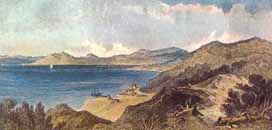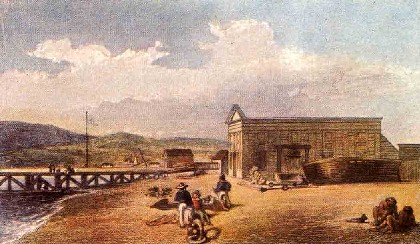 | Twelve months in Wellington / by John Wood (1843)
Chapter 14 |
| Contents: narrative | chapters: 1 | 2 | 3 | 4 | 5 | 6 | 7 | 8 | 9 | 10 | 11 | 12 | 13 | 14 | 15 | 16 | 17 | |
2nd. The land they have sold being inaccessible, even if ours, is of no use for agricultural purposes. The Company certainly did not bind themselves to open the country ; but in their compact with the public they are morally bound not to take money for land which cannot be got at. 3rd. Instead of giving us our country land within a moderate distance of their first and principal settlement, which was tacitly implied in their contract, we found, on arrival at Port Nicholson, a re-emigration of 112 miles by sea necessary, to the river of Wanganui. To this district, up to the period of our quitting New Zealand, the Company, had not, as promised, sent a single labourer for its cultivation! They must have received about £25,000 for this purpose from the settlers, but instead of sending the labour thus paid for to Wanganui it was sent to Wellington. Is not this a breach of trust? 4th. What means a dividend of 10 per cent from their profits in the emigration trade, when the settlers, who have given them the cash they thus dispose of, are yet without their land. 5th. For all the evils with which the settlers have had to contend we hold this Company responsible, although for the present they have managed to shelter themselves by making a scape-goat of both the local and home Governments. From the commencement of their colonizing operations they have proceeded upon defective information. This is the pith of our charge against the New Zealand Company, and it is no light one, for they must be held morally responsible for leading many families into error.
|

